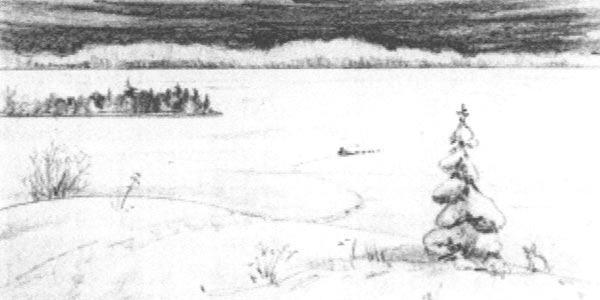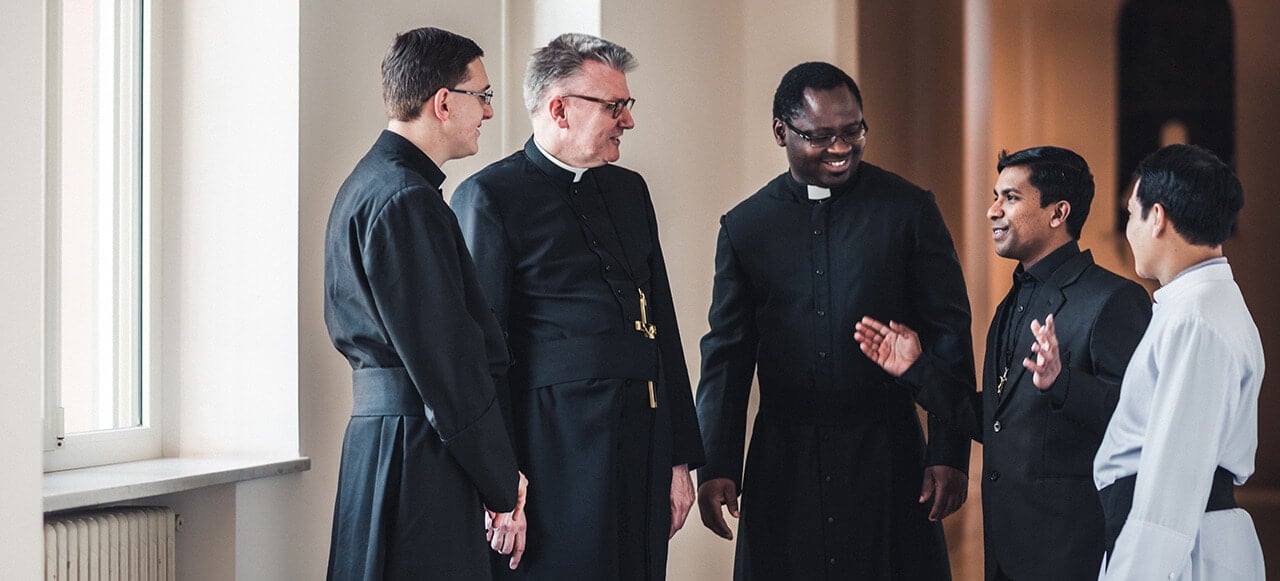It may be said that in the first centuries of Christianity “The blood of martyrs was the seed of the Church”. However, in the short History of the Oblates in Canada, it may also be said that the missionaries to the Amerindians and the Inuit, by offering their lives in often dramatic circumstances, cleared the way for a great number of conversions.
The year 1991 marked the hundred and fiftieth anniversary of the arrival of the Oblates in Canada. Montreal welcomed them on December 2, 1841. Fifteen years later they had already reached the Western plains, the Mackenzie River, and the Arctic Circle. Nothing stopped them. They rode the full-bred horse of the prairies, confronted dangerous rapids, hunted bison and caribou, fished through the ice for char, and learned the dialects of the aborigines. Hundreds of Oblate Fathers and Brothers, from France and later from Québec, dedicated their lives, at the cost of heroic acts of self-sacrifice, to spread the Word of Jesus Christ. In 1864 Father Henri Grollier, who had reached Good Hope, in the Arctic Circle, could say, as he was dying : “I die content, O Jesus, now that I have seen your banner raised up to the extremity of the earth.”
One victim among so many
Among all the valiant Oblates who wrote the “white epic” of the northland, some twenty were swept away accidentally by the dark and devious wave of fate. Father Joseph Frapsauce was one of these men. He followed in the steps of Fathers Paul Girardin, Joseph Brohan, Elphège Allard, Joseph Buliard, Henri-Paul Dionne, Honoré Pigeon, Brothers Emile Portelance, Alexandre Cadieux and many others. Most noteworthy was the mission to the Eskimo, or Inuit, which claimed the lives of Fathers Guillaume Le Roux and Jean-Baptiste Rouvière. Both were brutally massacred in 1912, near Coppermine. Father Frapsauce, born in France on July 5, 1875, arrived on the banks of the Mackenzie in 1899. He thought it an honor and a special grace to succeed these two martyrs when five years after their death, he settled on the shore of Great Bear Lake. There, he lived the life of a hermit, forced to provide personally for his essential needs by hunting and fishing.

A tragic end
In 1920, at the end of October, the missionary harnessed his dogs and headed for Dease Bay where the fish were most abundant. He was hoping that the ice could support him and his rigging. Unfortunately, it was still too thin. It gave in all at once and everything, missionary, dogs, sled, baggage sank to the bottom of the bay. In spite of intense searches, his body could not be found. The following year, a certain Joseph Trucho was checking his traps along the edge of Dease Bay. He noticed a few wolves devouring something. To all appearances it was a human body. Pieces of black cloth were found that could well be remains of Father Frapsauce’s cassock. Another year passed until Father Fallaize arrived. He was intrigued by the remnant of the cassock, and went to the spot indicated to him by the Amerindian. He dug into a wind-blown snow bank and found the body of his confrere terribly torn apart. Regardless, it was a consolation for him to discover the beloved missionary. He then buried him as appropriately as possible.
Deaths that bore fruit
Three lives were offered for the conversion of the Inuit. They were not in vain. At about the same time, a few kilometers away, on the banks of Hudson Bay, Father Turquetil had the joy of baptizing the first converts at Chesterfield Inlet, members of four Inuit families. Father Fallaize, on his part, poured the Baptismal Waters on the foreheads of three adults and two children, natives who up to that time had been harshly opposed to the Catholic Faith. Today, after seventy years, the Oblate missionaries continue to bring the Good News to the Inuit of the Canadian Northlands. From East to West, from Pont Inlet to Aklavik, from Iglook to Tuktoyaktuk, they are the worthy successors of men like Le Roux, Rouvière, Frapsauce, Fallaize and Turquetil. They also are believers in the words of Jesus: “There is no greater love than this: to lay down one’s life for one’s friends.” (John: 15, 13)
André DORVAL, OMI
